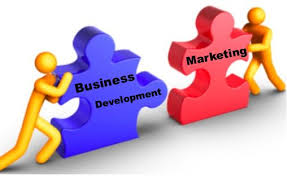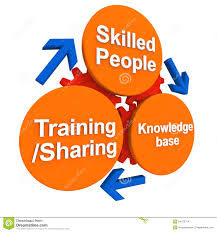SERVICE CATEGORIES

Business Development & Marketing
Business development comprises a number of tasks and processes generally aiming at developing and implementing growth opportunities within and between organizations. It is a subset of the fields of business, commerce and organizational theory. Business development is the creation of long-term value for an organization from customers, markets and relationships. Marketing is communicating the value of a product, service or brand to customers, for the purpose of promoting or selling that product, service, or brand.
More
Financial Services
Financial services are the economic services provided by the finance industry, which encompasses a broad range of businesses that manage money, including credit unions, banks, credit card companies, insurance companies, accountancy companies, consumer finance companies, stock brokerages, investment funds, real estate funds and some government sponsored enterprises.
More
HR Services
Human resources is the set of individuals who make up the workforce of an organization, business sector, or economy. "Human capital" is sometimes used synonymously with human resources, although human capital typically refers to a more narrow view (i.e., the knowledge the individuals embody and can contribute to an organization). Likewise, other terms sometimes used include "manpower", "talent", "labour", or simply "people". The professional discipline and business function that oversees an organization's human resources is called human resource management (HRM, or simply HR).
More
Insurance Services
Insurance is the equitable transfer of the risk of a loss, from one entity to another in exchange for payment. It is a form of risk management primarily used to hedge against the risk of a contingent, uncertain loss. An insurer, or insurance carrier, is selling the insurance; the insured, or policyholder, is the person or entity buying the insurance policy. The amount of money to be charged for a certain amount of insurance coverage is called the premium. Risk management, the practice of appraising and controlling risk, has evolved as a discrete field of study and practice.
More
IT Solutions and Services
IT Solutions and Services is the application of business and technical expertise to enable organizations in the creation, management and optimization of or access to information and business processes.handle some part of another company’s IT landscape and vary dramatically in the scope of their work.These are performed by an organization or part of an organization to plan, deliver, operate and control IT services offered to customers. It is thus concerned with the implementation of quality IT services that meet the needs of customers, and is performed by the IT service provider through an appropriate mix of people, process and information technology.
More
Logistics
Logistics is the management of the flow of things between the point of origin and the point of consumption in order to meet requirements of customers or corporations. The resources managed in logistics can include physical items, such as food, materials, animals, equipment and liquids, as well as abstract items, such as time, information, particles, and energy. The logistics of physical items usually involves the integration of information flow, material handling, production, packaging, inventory, transportation, warehousing, and often security. The complexity of logistics can be modeled, analyzed, visualized, and optimized by dedicated simulation software. The minimization of the use of resources is a common motivation in logistics for import and export.
More
Security Services
Security service is a service, provided by a layer of communicating open systems, which ensures adequate security of the systems or of data transfers.Security service are disciplines that are dealing with the requirements of Confidentiality, Integrity, Availability of information assett of an organization(company or agency) or the information managed by computers respectively.
More
Training and Skill Development
Training and Skill Development means developing yourself and your skill sets to add value for the organization and for your own career development. Fostering an attitude of appreciation for lifelong learning is the key to workplace success. Continuously learning and developing one's skills requires identifying the skills, and then successfully seeking out trainings or on-the-job opportunities for developing those skills.Training is teaching, or developing in oneself or others, any skills and knowledge that relate to specific useful competencies. Training has specific goals of improving one's capability, capacity, productivity and performance.
More